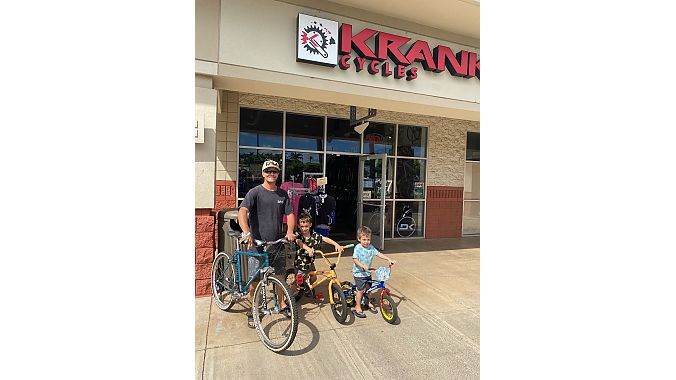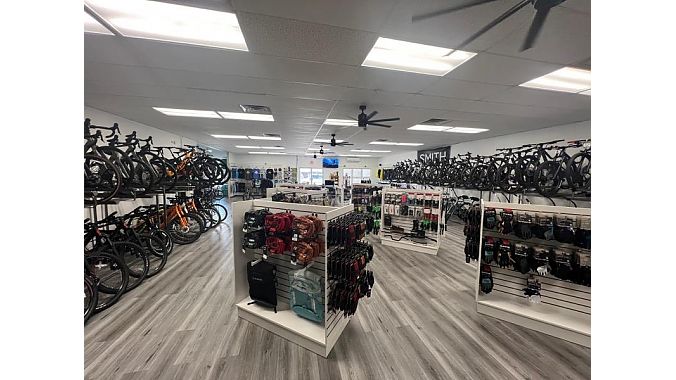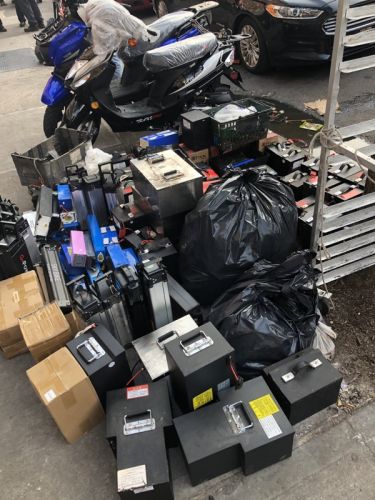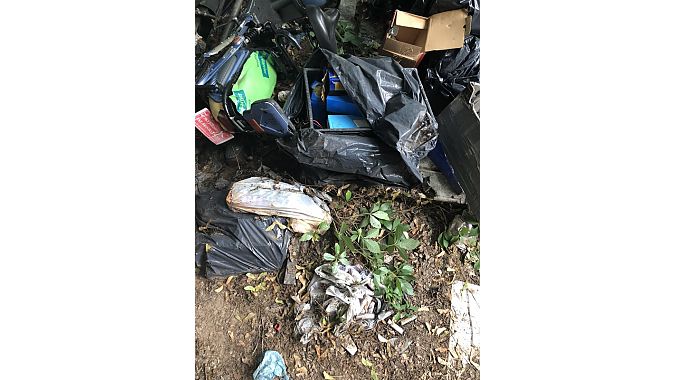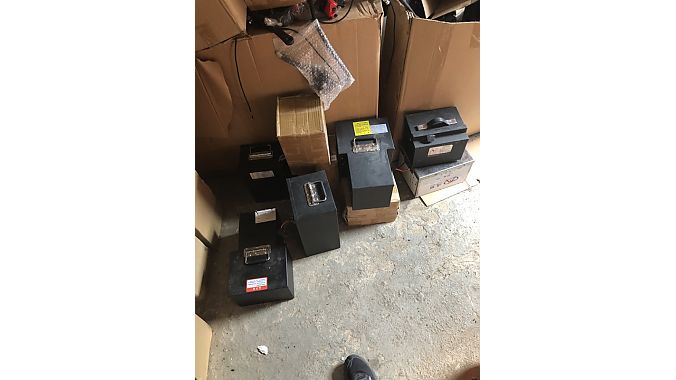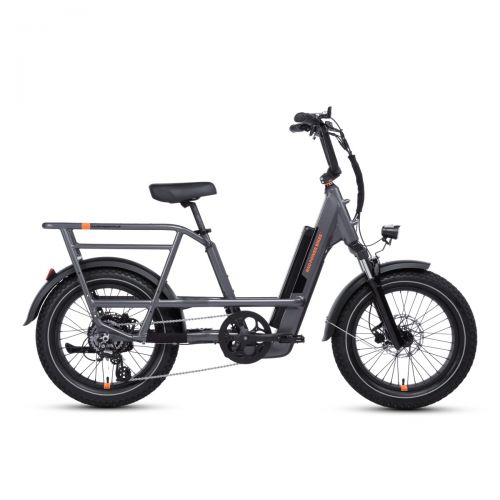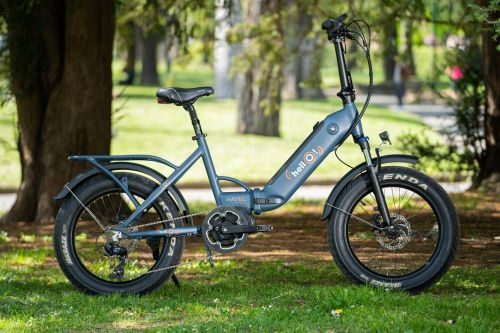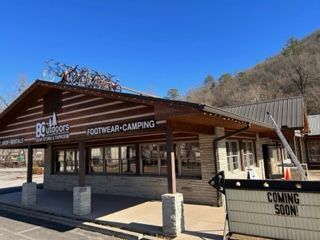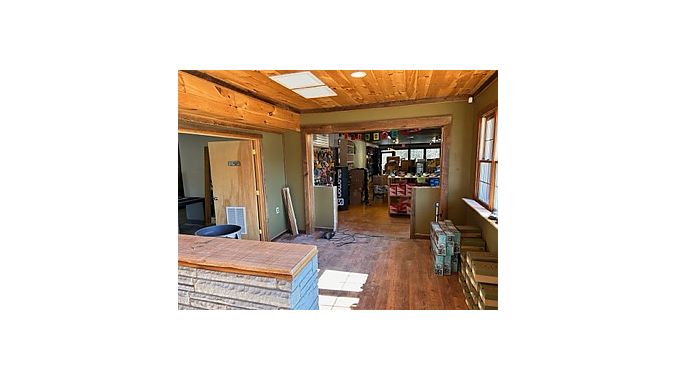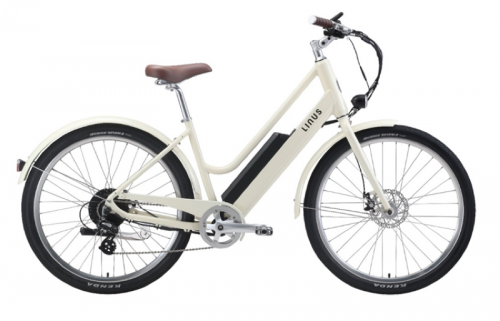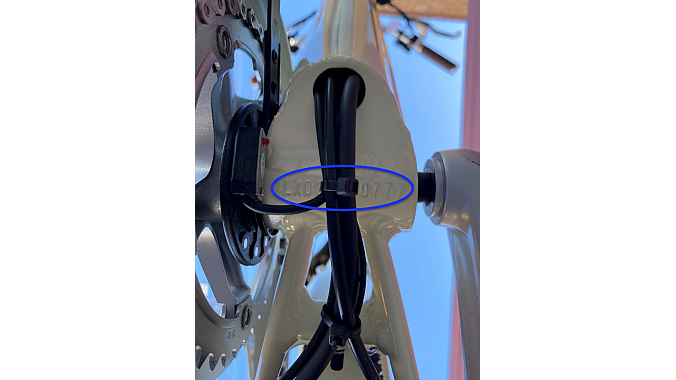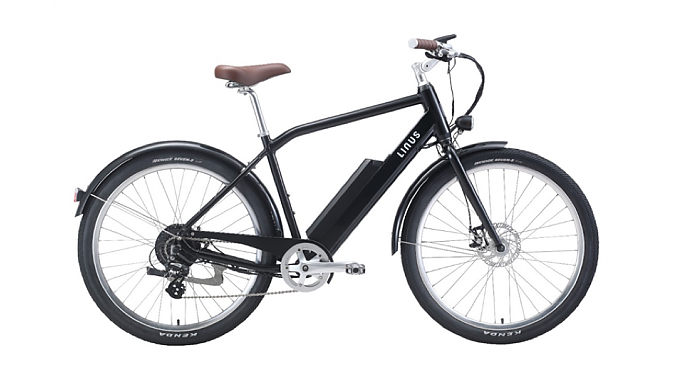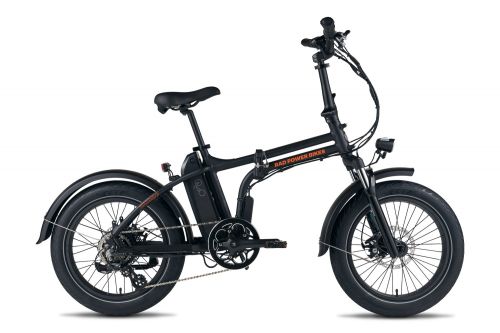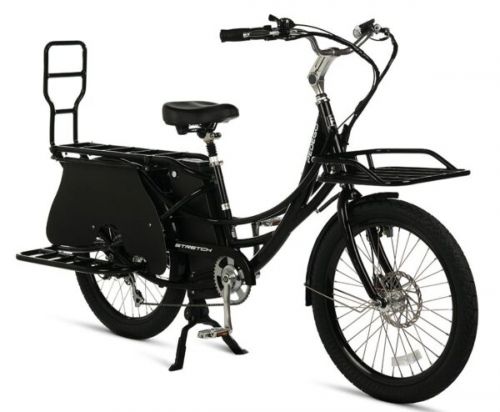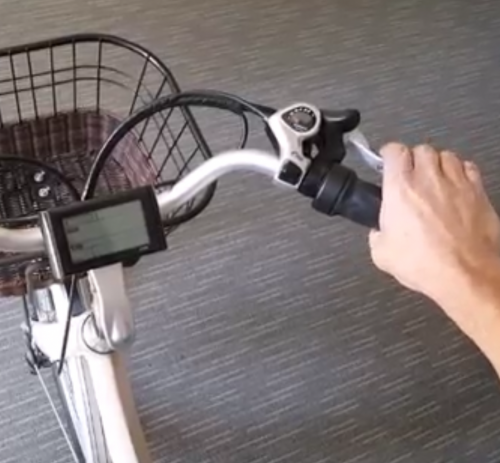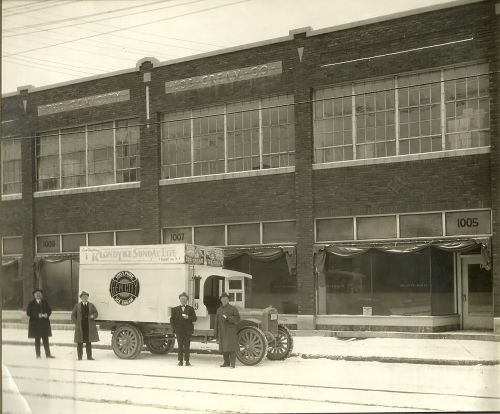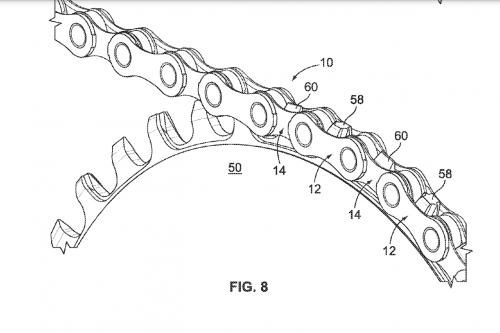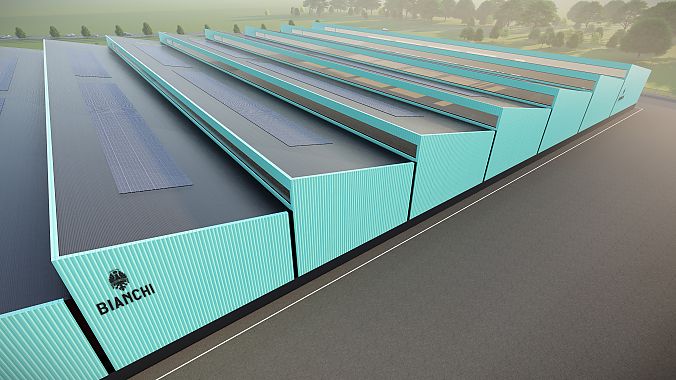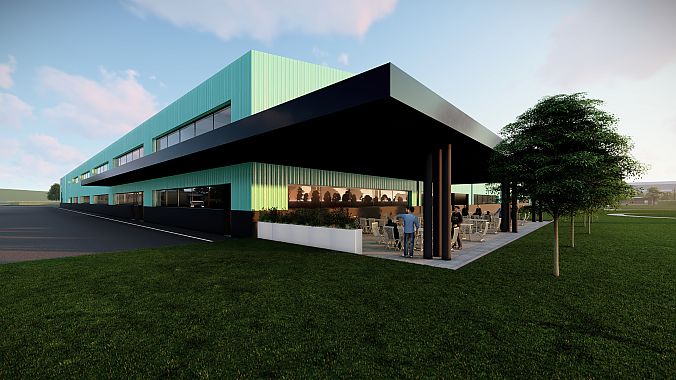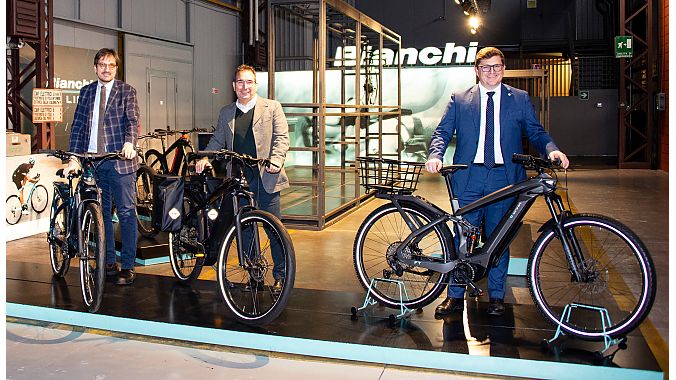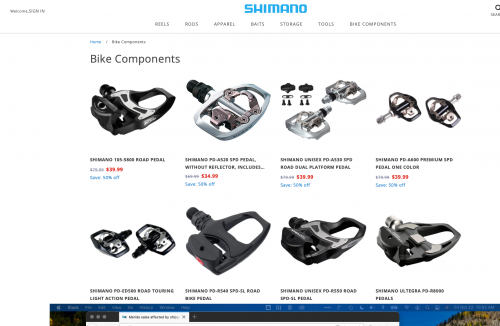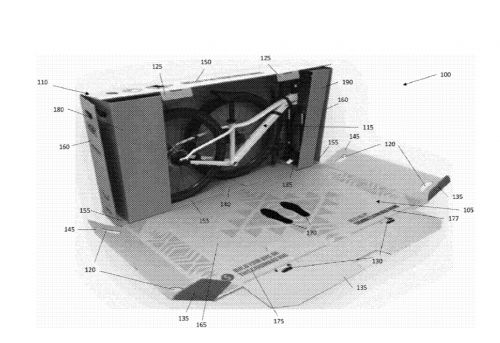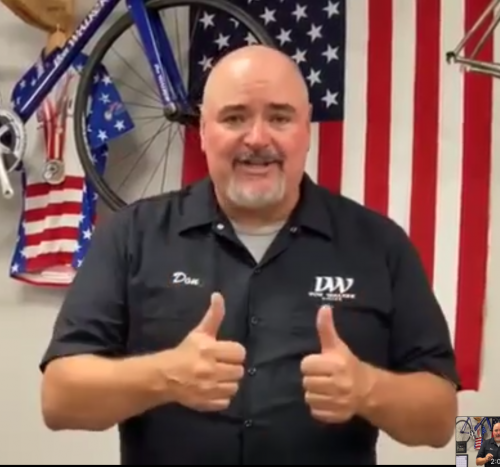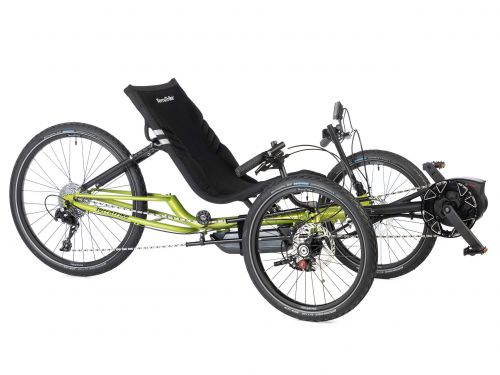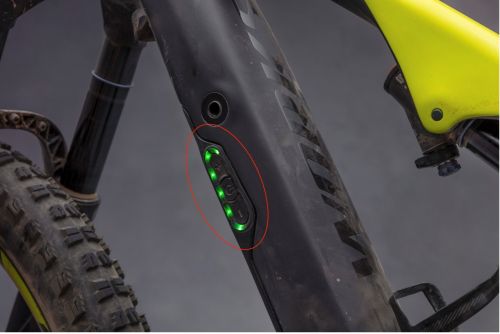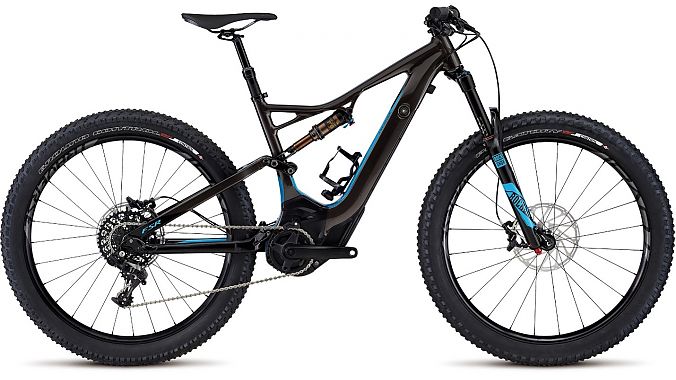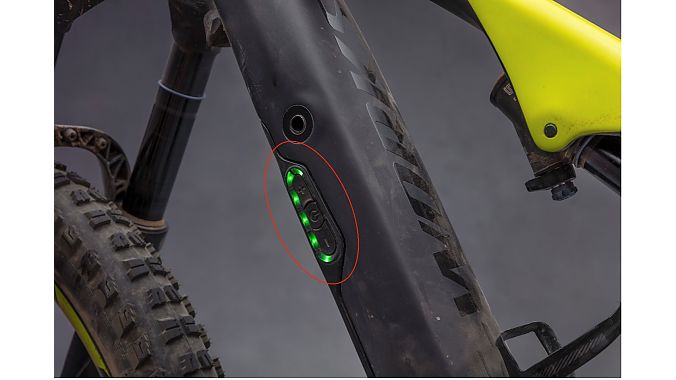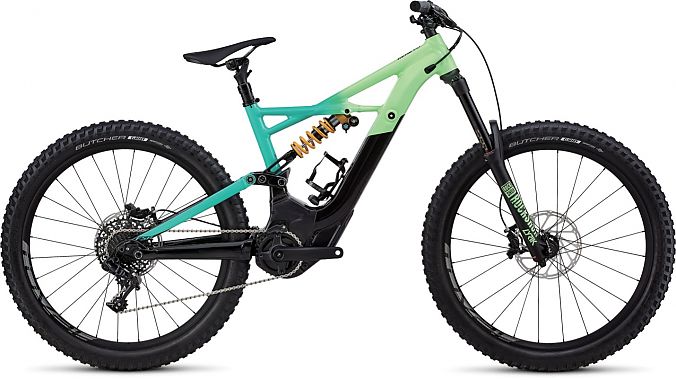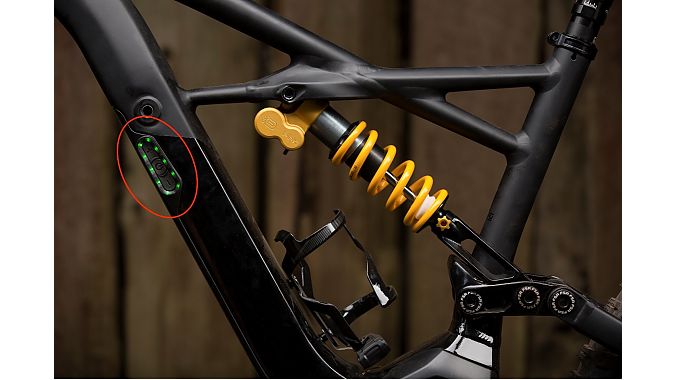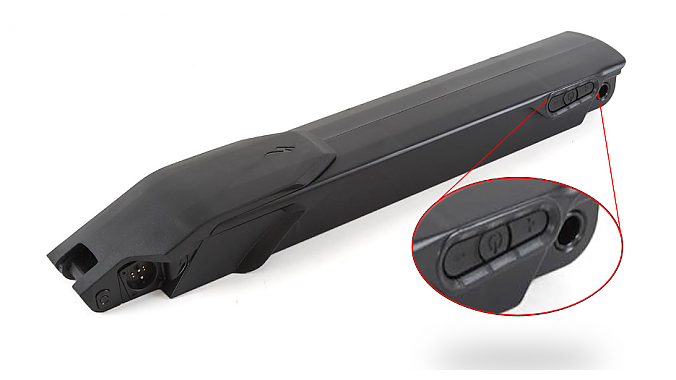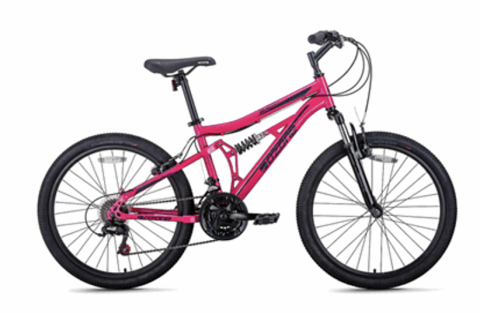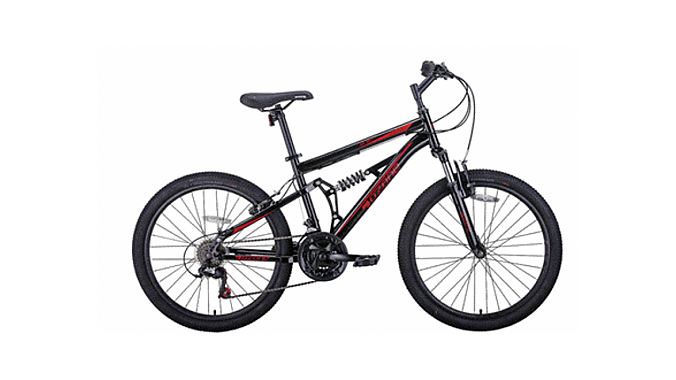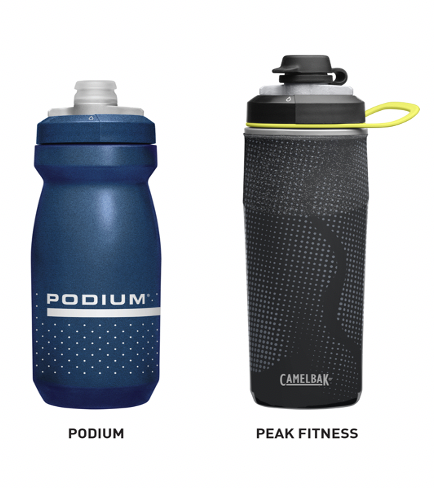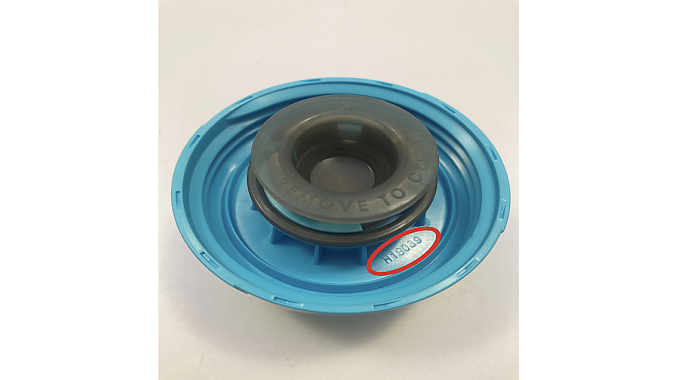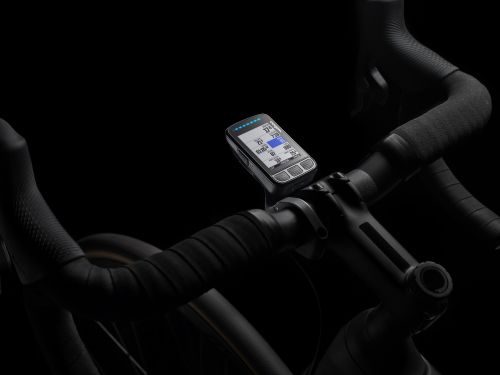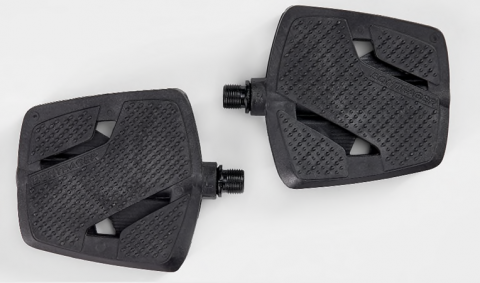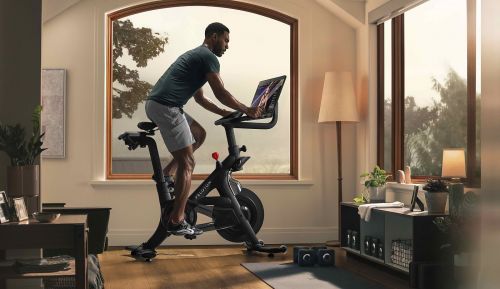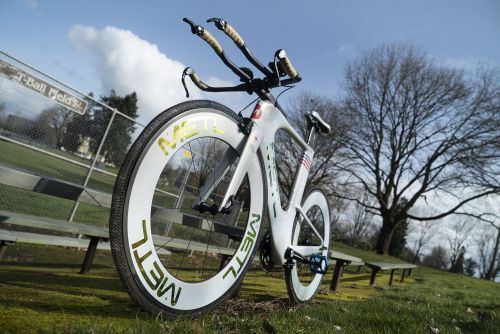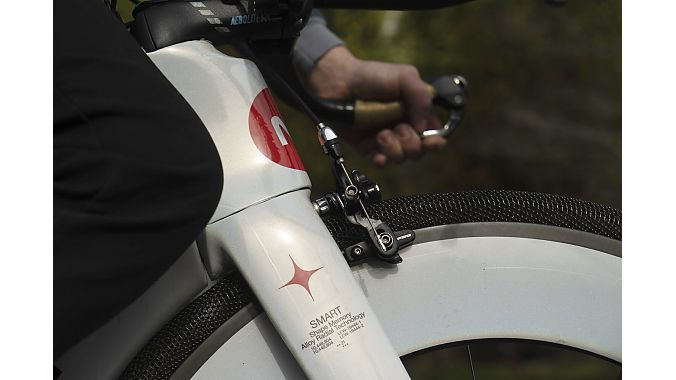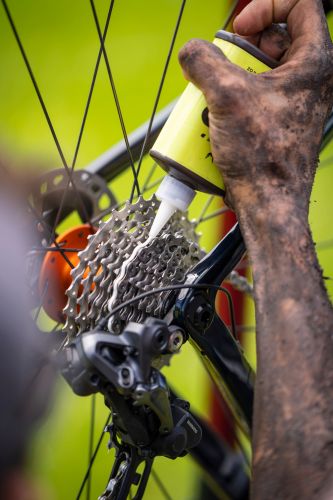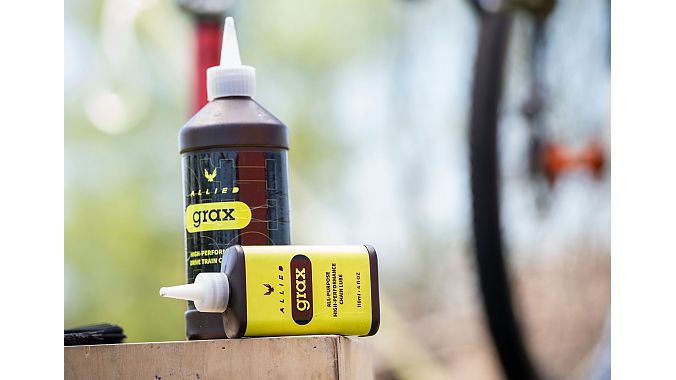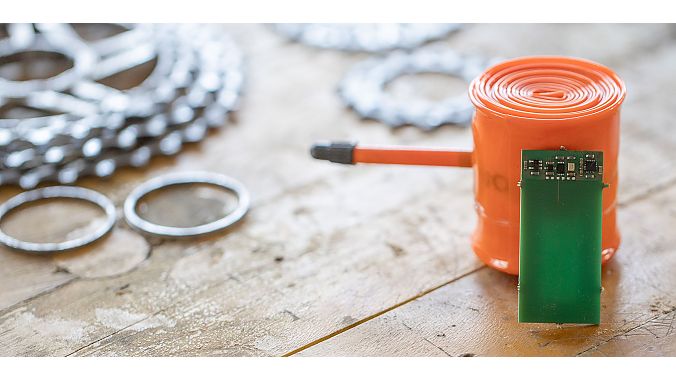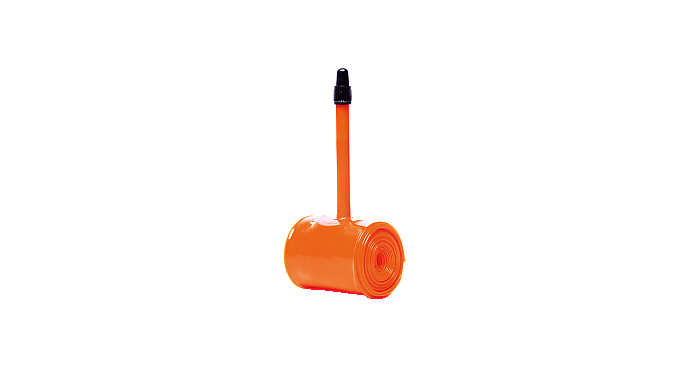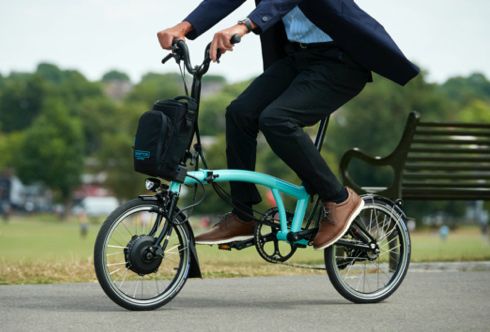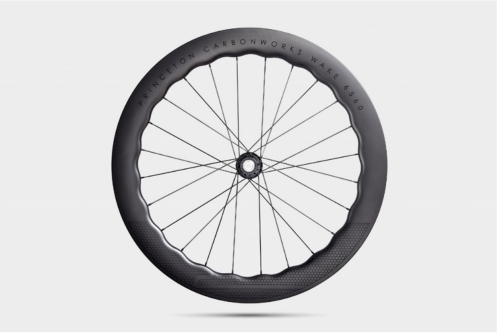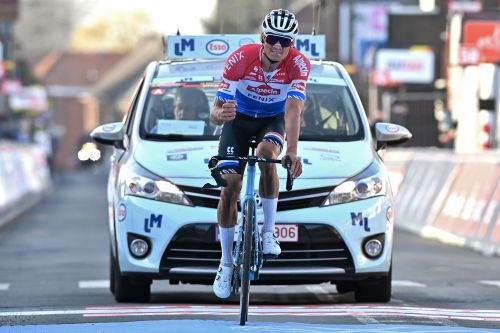"It is just crazy here on the Champs Elysées, coming in the yellow again with an incredible team. We enjoyed today and now it’s time for celebration. We will have a good time and that counts as a celebration. The start of the stage was nice, taking it easy. We enjoyed chatting with each other. Then we came here on the cobbles and it was full-gas racing again, like every day. I cannot express my feelings of how happy I am. With the people I have around… it’s another level. I will remain motivated in the coming years, but what come next will come next… I’m not stressed about it. It’s quite different. Last year, I felt strong, incredible emotions. This year I’m again here, standing atop the podium, but the feelings are quite different. The new Cannibal? I don't like to compare myself to other riders. Each rider has his own style and personality. Every rider is unique. I don’t think there is anything left. I just enjoy life, I work hard, I love cycling - and those are the most important things."

Little cannibal
Academy Sports + Outdoors recalls Ozone 500 girls and boys Elevate bikes
WASHINGTON (BRAIN) — Academy Sports + Outdoors is recalling some Ozone 500 girls and boys Elevate 24-inch bikes because of a fall and injury hazard.
The hazard involves the rear shock spring, which can become stuck and create a pinch point between the spring and the seat, posing an injury risk, or causing the bicycles to stop unexpectedly and creating a fall hazard to the rider. The retailer has received one report of a person injuring their hand under the seat when the rear shock spring compressed.
The recall involves about 3,860 bikes that have "Ozone 500" printed on the frame. The girls bike is fuchsia with black script, and the boys bike is black with red script. The following style numbers are on the seat tube: 164538 (girls) and 164540 (boys). The bikes were sold at Academy Sports + Outdoors stores and online at www.academy.com from October 2020 through May 2021 for about $300.
Consumers immediately should stop using the bikes and bring them to any Academy Sports + Outdoors store for a free repair or full refund. Consumers also can contact any Academy Sports + Outdoors location for a replacement shock and repair instructions or to receive a prepaid shipping label to return the bike for a full refund.
CPSC recall notice: Academy Sports + Outdoors Recalls Ozone 500 Girls’ and Boys’ Elevate 24-Inch Bicycles Due to Fall and Injury Hazards.
Tannus introduces gravel tire insert
SPANISH FORK, Utah (BRAIN) — Airless tire manufacturer Tannus enters the gravel tire insert market with an emphasis on flat prevention, rim protection, shock absorption, and sidewall support.
The Armour Tubeless Gravel insert weighs 70 grams, allowing riders to run lower pressures while still offering rim protection, increased bump compliance and increased traction.
While offering 20mm of rim protection, the inserts also allow riding while flat. The insert design provides sidewall stiffness to reduce the chance of rolling the tire.
MSRP is $49.99 for one insert. A rim with a minimum inner width of 19mm is required.
Brest
26/06/2021 - Stage 1 - 197,8 km - Hilly
30 previous stages
Sub-prefecture of Finistère (29), Maritime Prefecture of the Atlantic
Population: 140,000 (Brest residents) and 210,000 for the 8 communes of Brest Métropole.
Personalities : Paul Deschanel (former president of the Republic), Yann Tiersen, Christophe Miossec (singers), Olivier de Kersauzon (sailor), Alain Robbe-Grillet, Yann Queffelec (writers), Béatrice Dalle (actress), Irène Frachon (doctor, whistleblower), Benoit Hamon, Jean-Jacques Hurvoas (former ministers), Charlotte Bonnet (swimming), Corentin Martins (soccer), Eric Berthou, Valentin Madouas, Olivier Le Gac (cycling)
Specialties: pancakes, seafood, salted butter caramel, kig ha farz, strawberries, beer
Sports: Stade Brestois 29 (soccer, League 1), Brest Bretagne Handball (Division 1 women), Brest Bretagne Nautisme (1st nautical club in France), Pôle France Voile olympique. Events : Brest is the port of records for round-the-world sailing.
Culture: Brest 2024 International Maritime Festival, European Short Film Festival, Astropolis (electronic music, July-August)
Economy: sea, health, banking/insurance, agriculture/agribusiness, digital. The tertiary sector represents 75% of the activity: headquarters of the Arkéa banking group, B&B hotels, the Eurodif group, the Kanabeach surfwear brand. France's ninth largest commercial port. Europe's leading center for science and technology related to the sea: 60% of French research in the maritime field is based in Brest. DCN, Direction des Constructions Navales (manufacture and repair of submarines and aircraft carriers). Brest airport, the leading airport in Brittany for passenger traffic (over 800,000). Thomson-Thales (generator sets), Cabasse (high-end loudspeakers), Saveol (strawberries, tomatoes), Sill (fruit juice). French Navy (15,000 military jobs). Slogan: "North, South, East... Brest
Labels: City of Art and History, Active and Sporting City (3 ears of corn)
Websites : www.brest.fr / www.brest-life.fr / www.brest-metropole-tourisme.fr / www.brest-terres-oceanes.fr / www.finistere.fr / www.bretagne.bzh




BREST, A STORY
A new city… and a lasting perspective
At the end of the war, Brest was no more. Today, the city has been rebuilt and reinvents itself every day.
You can feel this energy pulsating in this part of downtown that has grown on the banks of the Penfeld, near the famous Recouvrance district: the Plateau des Capucins. The former "Forbidden City", as it was called before the French Navy withdrew from it, has undergone a transformation and a whole new district has emerged on its heights, with the Ateliers as its figurehead, where generations of Brest residents have manufactured the parts of warships. A place of life, culture and innovation, the Ateliers des Capucins and the cable car that links them to the historic city center have become the symbol of a metropolis on the move.
"Cities where the sea and the horizon are part of the urban furniture are rare. "Yann Queffelec wrote. Brest is one of them. A military, scientific, commercial and leisure port, and a port of records, Brest's harbour is home to a concentration of maritime expertise very rarely found elsewhere. Home to the World Sea Campus and Ifremer, for Brest and its partners the oceans are both a subject of study and a breeding ground for innovation. As the French Tech capital, Brest will host the future coordination centre for maritime cybersecurity. Finally, Brest and the Brittany region are committed to the development of renewable marine energy and have invested heavily in the construction of a terminal where the foundations for wind turbines in the Bay of Saint-Brieuc are produced.

BREST AND CYCLING
Almost an obligatory stopover for the pre-war Tour, since the race went there 23 times between 1906 and 1939 (Gustave Garrigou and Henri Pélissier each winning three times), Brest has been back on the map of the Grande Boucle since 2008 after a long 34-year hiatus. The second most populated city in Brittany will have the privilege of being the launch pad for the Tour de France for the fourth time since the Second World War. In 1952, it was the starting point of the first stage to Rennes, won by Rik Van Steenbergen. In 1974, it was Eddy Merckx who won the prologue of his last Tour victory. Finally in 2008, Alejandro Valverde won the first stage in Plumélec, starting from Brest. Considering the pedigree of these riders, all three world champions, we can expect a worthy winner in Landerneau! In 2018, for the last departure of a stage of the Tour in town, it was Dan Martin who won in Mûr-de-Bretagne.
Among the many riders born in Brest, must be mentioned Jean-Pierre Genet, who finished last in the 1967 Tour, wore the Yellow Jersey the following year and won three stages in 1968, 1971 and 1974, Christian Seznec, who won two stages in 1978 and 1979, the whimsical Erwan Menthéour, Camille Le Menn, Arthur Bihannic, Gérard Kerbrat, all of whom took part in the Tour de France, or Eric Berthou, and among the riders still in the race Valentin Madouas and Olivier Le Gac, both riding for the Groupama-FDJ team



SIGHTS
Ateliers des Capucins and cable car
The Capucins is the new cultural and living place of Brest. These huge buildings once housed the Arsenal's mechanical workshops. They have been transformed to become the largest covered public space in Europe (10,000m²), dotted with testimonies of the past: the Emperor's canoe, the propeller shaft of the Jeanne d'Arc... It can be reached by car, by streetcar and even by... cable car. Soon, the public will be able to visit the "70.8", a scientific culture center dedicated to sea technologies.
Océanopolis
In the Moulin Blanc marina, this immense park is a model for both scientists and sea lovers, who can discover the ocean in all its aspects in the three thematic pavilions that make up the complex. The temperate pavilion, the first one installed at the opening of the park in 1990, is of course dedicated to Brittany, and also houses a seal colony. The polar pavilion is the kingdom of penguins, and the tropical pavilion allows you to discover all sorts of species in a whirlwind of colors. With its extension in 2000, the park has gone gigantic: 8,000 m2 of visiting space, 42 aquariums, 3.7 million liters of sea water and more than 10,000 animals, representing more than a thousand species.
Garden of the national botanical conservatory
In the heart of the Stang-Alar valley, a stone's throw from the city center, it invites you to discover the world of plantswith your family. Built in a former quarry, this 30-hectare site was chosen for its mild climate, its steep slopes and the presence of water, which make it a place where plants from all over the world can grow. It is the first institution, created in 1975, dedicated to the preservation of endangered wild plants. The tropical greenhouses allow visitors to travel among the world's rarest and most endangered plants, of which nearly 1,800 would be extinct or endangered without it. They attract over 350,000 visitors each year.
National Navy Museum
Within the recently renovated castle of Brest, rich with seventeen centuries of history, the National Museum of the Navy traces the history of the arsenal and the great fleets of the high seas from Primauguet and Richelieu to the present day, and confirms the close and age-old ties between the city of Brest and its maritime history. While walking through the different rooms of the castle, the historical heart of the city, and one of the rare vestiges of its past, one discovers a collection of models of ships, paintings, sculptures, a pocket submarine, the evocation of the old Brest, the memories of the prison... all related to the great naval adventure. It also bears witness to the courage of the intrepid sailors and explorers who set out from Brest towards the unknown, such as Lapérouse or Bougainville.
The Brest Museum of Fine Arts
A place of sharing and openness to art, its visitors can admire various collections of works (painting, sculpture, graphics, musical instruments...) dating back to the 16th century. Resolutely involved in a process of dissemination of art to the general public, it has established an art library that allows everyone to borrow and enjoy a real work of art at home.
The American Monument
It was in Brest in 1917 that Europeans heard jazz for the first time. Brest was indeed the port of landing and return of 1,200,000 GI's who came to fight in the First World War. The monument erected in their memory in 1932, destroyed and then rebuilt in 1957, is a symbol of the ties of friendship forged as early as the Revolutionary War when Lafayette's forces from Brest supported the Patriots against the British crown.






TO EAT :
Cod à la Brestoise
Although Brest has adopted most of the Breton specialties (galettes, far breton, brandies and even strawberries from neighboring Plougastel), the city has a few typical recipes, the most famous of which is undoubtedly cod à la brestoise, which is as simple to make as it is tasty to eat. Leeks, potatoes and onions, all sliced like the cod itself, are necessary for this dish halfway between the gratin and the brandade, as tasty as it is hearty.

As you may have already heard, there has been a surge in Covid cases in Southeast Asia, which has prompted government officials to close businesses to try to prevent the spread of the virus. Unfortunately, our factories in Malaysia are not exempt from these closures. We support the local government’s efforts to help protect the health of the Malay people and Team Shimano members.
At this point, team SHIMANO’s Malaysian factory operations will be closed through June 28, per government orders. At that time, the government will review the status and determine if things can open back up or will need to remain closed. The primary product impacts will be to component series below 105/SLX, Pedals, and Wheels. Other product groups may also be affected.
In addition to this, we have seen closures and or severe restrictions in some ports in China. These closures will have direct impacts on some chains as well as Lazer helmet categories. In addition to causing additional strain on global logistics, which has been challenged for much of this year. Link to some insights on global effects here.
Unfortunately, this pause in factory production will delay future deliveries globally, including North America. At this time, it is difficult to determine the full impact of these delays. As we get more clarity, we will update our B2B to clarify when you may receive existing backorders and new orders.
Thank you for reading. The bike industry has been relatively fortunate and benefitted from more people getting outside but has by no means been easy to manage. Thank you for your business and continued efforts to support the new and existing cycling consumers.
Sincerely,
AVP SHIMANO North America Bicycle, Inc.
CamelBak recalling some Podium and Peak Fitness water bottles due to faulty valve
WASHINGTON (BRAIN) — CamelBak is recalling about 60,000 of its Podium and Peak Fitness water bottles because the cap's silicone valve can loosen and detach, posing a choking hazard.
The recall involves about 46,000 bottles sold in the U.S., and about 13,000 sold in Canada. The affected bottles have date codes of H19039, H19063, and H19175 on the underside of the cap. The bottles were sold at sporting goods stores nationwide and online from February 2019 through January 2021 for between $10 and $25, depending on the bottle.
They also were sold in a variety of colors in 17-, 21-, and 24-ounce sizes. CamelBak and Podium or Peak Fitness are written on the bottles. Consumers should stop using and contact CamelBak for a free replacement cap.
CamelBak has received 14 reports of valves loosening and detaching. No injuries have been reported.
More information: CPSC recall notice.
ATLANTA (BRAIN) — The new Elemnt Bolt from Wahoo Fitness features a color display and expanded navigation features while maintaining its previous interface and connectivity.
The Bolt has been upgraded with a 64-color high-contrast screen. The 2.2-inch screen is made of scratch-resistant Gorilla Glass. Now featuring Smart Navigation — previously available only on the Elemnt Roam — the Bolt automatically reroutes riders who stray from their planned route, lets riders change destinations, route back to the start, and retrace their rides from the computer, without having to use their phone.
An updated user interface offers customizable, color-highlighted fields. An ambient light sensor automatically adjusts the screen backlight. Quick view LEDs on the top of the screen provide turn-by-turn directions, signal approaching Strava Live segments, and provide notifications.
The Bolt has a 15-hour run time with onboard memory increased to 16GB. When paired with the Wahoo Elemnt app, riders can customize data screens, sync routes, and analyze data.
The new Bolt has an MSRP of $279.99 and is available for purchase at Wahoo dealers and at Wahoofitness.com.
Trek recalls 300,000-plus Bontrager pedals that can be difficult to install correctly
WASHINGTON (BRAIN) — Trek Bicycle is working with government officials to recall about 316,500 pedals in the U.S., and another 28,650 in Canada, because the pedals can fall off if installed incorrectly.
The Bontrager Satellite City Bicycle Pedals were original equipment on Trek Allant+, Dual Sport+, FX 2, FX 3, Verve 2, Verve 3, and Verve+ model bicycles.
Trek has received 132 reports of the recalled pedals loosening, locking up or falling off, including seven reports of riders falling and experiencing injuries, including scrapes, bruises and road rash. Consumers are being told to stop using bikes with the pedals and contact a Trek dealer for a pedal replacement.
A Trek dealer told BRAIN that the pedals have a shallow 6 mm hex socket on the inside of the spindle, and no 15mm wrench flats.
Because of the shallow socket, a wrench can pop off easily, the dealer said.
"Plus, you can't use just any 6mm Allen; most are much too short to get tight enough. And finally, because it's difficult to maneuver around to install them when the bike's on the floor, you try to tighten it while it's in the bike stand, and it's hard to get it tight enough that way. When you have the bike on the floor, you've got a sense of the torque being applied because you're essentially pushing against the ground," the dealer explained.
Consumers can contact Trek at 800-373-4594 from 8 a.m. to 6 p.m. CT Monday through Friday or online at www.trekbikes.com and click on "Recalls" under "Legal" at the bottom of the page for more information. According to Trek's consumer notice, those who bring back the pedals to be replaced will receive an in-store credit of $20 to use toward any Trek or Bontrager merchandise.
The recalled pedals have "ZTR02" stamped on them as shown in the image below. The Chinese-made pedals were sold from January 2018 through April 2021 on bikes selling for between $600 and $6,000. The pedals were also sold separately for about $30.
More information: CPSC recall page | Canadian recall page | Trek recall page (pdf).
Fire destroys Pro Bike + Run Monroeville inventory, closes location
MONROEVILLE, Pa. (BRAIN) — A four-alarm fire destroyed Pro Bike + Run's entire inventory of bikes and accessories at its Monroeville location Tuesday and closed the store indefinitely.
No employees or customers were injured in the afternoon fire.
"Seeing the interior pictures of the shop, I think it's pretty much a total write-off," Chuck Kininmonth, Pro Bike + Run sales manager, told BRAIN on Wednesday. "We had around 300 bikes in there and all accessories and running shoes, the whole nine yards."
Kininmonth, who was not at the shop when the fire started, said it's believed it originated in the second-floor utility room of the two-story prefab glass and steel building. He said it quickly spread outside to the shoe closet, up a wall where tire stock is stored, down to the plywood flooring, and then throughout the store.
"When I pulled up there yesterday, I counted 14 fire trucks," Kininmonth said. "The fire was out in an hour and a half. It went up really quick."
Eight employees and about a half-dozen customers were in the store at the time when smoke was noticed right before the fire alarm went off. Building inspectors will determine if the structure is safe to rebuild, Kininmonth said. Pro Bike + Run, which has four locations in the Pittsburgh area, shares the first floor with a GNC and AT&T store.
With the nearest location about 12 miles away, Kininmonth said plans are to open a temporary location nearby.
"The No. 1 good thing about it was we got everybody out of there, the employees and customers, and everybody's safe and sound," he said.
Peloton plans factory for Ohio
NEW YORK (BRAIN) — Peloton Interactive, Inc. has selected Troy Township in Wood County, Ohio, for its first U.S. factory. The factory will begin producing Peloton's Peloton Bike, Bike+ and Peloton Tread starting in 2023, the company said. It said Peloton will commit approximately $400 million to the facility over the coming years.
"We are thrilled to bring a good portion of our manufacturing to United States soil and proud that it will be in the great state of Ohio," said Peloton's CEO and co-founder John Foley. "While we will continue to invest in our Asian manufacturing footprint as well as our existing facilities in the U.S. via our Precor sites, the new Peloton Output Park gives us a massive strategic lever to make sure we have capacity, quality, and economies of scale in our bike and tread product lines, to support our continued growth for years and years to come. We are incredibly excited to meet and welcome the Troy Township community into the Peloton family fold."
Peloton Output Park is expected to sit on over 200 acres and have more than one million square feet of manufacturing, office, and amenities space. The facility will be built from the ground up in the center of Troy Township. On campus, Peloton plans to incorporate renewable energy sources to power its operations.
"The pandemic has demonstrated the need to on-shore manufacturing and rebuild supply chains, and Peloton's decision to build its first North American manufacturing facility in Ohio is a great example of an American company stepping up and leading that effort," said Ohio's Gov. Mike DeWine. "Ohio is excited to partner with Peloton's forward-looking leadership team in developing a new, state-of-the-art facility using connective technology, and creating 2,174 new manufacturing jobs in Wood County."
Peloton expects to add more than 2,000 jobs to the Troy Township area across executive, managerial, and entry-level opportunities. Positions will span corporate, manufacturing, assembly and quality assurance functions, it said.
CLEVELAND (BRAIN) — The Smart Tire Company announced in March plans to manufacture an airless bike tire in partnership with NASA, and while the space-age tie-in grabbed the headlines initially, it’s Smart Tire’s partnership with micromobility company Spin and Felt Bicycles that might have a most lasting impact.
Owned by the Ford Motor Company, Spin operates dockless e-scooter mobility fleets in U.S. cities and university campuses. It also has fleets in Canada, Germany, United Kingdom, and Spain.
That’s a lot of rubber in need of inflating, maintenance, and eventually replacing. And Smart Tire thinks it has the answer with the METL tire while at the same time manufacturing a recyclable product and reducing rubber waste.
“If you work with a company like that, they understand total cost, and they’re looking at it from a different view than a consumer,” said Smart Tire co-founder Brian Yennie about the Spin partnership.
A Spin spokesperson said the METL is an ideal fit for its fleets, combining the durability of solid tires with the supple ride of pneumatic. “The implications of this new technology are potentially transformative, with flat and worn-out tires becoming a thing of the past,” the spokesperson told BRAIN.
It’s all about Shape Memory Alloy
The METL, expected on the consumer market in the spring of summer of 2022 with the MSRP to be determined, came to be from the collaboration with NASA, which needed an airless tire for its Lunar and Mars Rover missions. Shape Memory Alloy — think inner tube — makes up the tire skeleton with rubber encasing it. It has the added benefit of allowing retreading.
The METL is manufactured in Cleveland, which is also home to the NASA Glenn Research Center, Goodyear and Cooper Tires.
“The other advantage we have there is because it’s not pneumatic and the rubber is not structural, we can just focus on the tread element,” Yennie said. “We can potentially make that thicker. We can potentially get into chemical engineering a little differently there.”
That would appeal to bike-share fleets and e-bike commuters who don’t want to worry about flats and inflation, Yennie added.
“Because the structural element is meant to last the lifetime of your bike, we’re trying to pair that with the longest lasting tread we possibly can,” Yennie said. “One of our NASA team members is out of Goodyear, so we have that automotive experience.”
That wire structural element is good at resisting deformations, Yennie said, but if it is damaged beyond repair, it can be melted and recycled.
Yennie said Smart Tire’s goal is for the consumer to buy one set of tires for the life of the bike.
“The pessimist will say there’s always ways to damage it,” he said. “We didn’t re-invent rubber; however, given all of our advantages, the goal here is to have the closest thing to a no-maintenance tire as we possibly can.”
While micromobility applications seem limitless, Smart Tire isn’t ignoring retail applications in the road, gravel, and mountain bike markets, and that’s where Felt Bicycles enters the picture. Felt is providing research and development (weight and rolling resistance) for the METL and providing bikes to test prototypes.
Felt Bicycles’ involvement
Yennie added there’s potential to form an OEM partnership with Felt down the line, “but the actual relationship there now is on the R&D side.”
Eric Sakalowsky of Felt said the benefit of the METL technology for bike-share companies and the e-bike industry on the whole is immense. “We suspect that weight will come down as the development progresses,” Sakalowsky said. “And, there could be other advantages that outweigh — pun — the negatives. It’ll be exciting to see this proceed.”
Sakalowsky said the METL’s potential benefit to the industry piqued Felt’s interest in the project, despite naysayers who might argue an airless tire will have trouble gaining market traction.
“There's always push back with disruption, as people get set in their ways,” Sakalowsky said. “But we should never stop innovating to find new ways in making cycling better and safer. This is an exciting application of an innovative technology used in space and that alone inspires us.”
Competitive road cyclists will no doubt look warily at the METL, but Yennie said he expects the gravel and mountain bike tires to be comparable in weight to traditional rubber. “Over time, I see us continuing to optimize and dropping that weight depending on how much demand there is.”
To achieve different ride characteristics with a regular tire, air pressure is manipulated. With the METL, different tire compounds will be available. “We’re actively researching mechanisms to be able to adjust that on the fly,” Yennie said. “I can’t speak to the specifics on that right now. If you look at the structure of the tires, if you look at that skeleton, you can imagine ways to tighten and loosen what you’re running on there.”
The METL initially will be available direct-to-consumer, but Yennie wants to eventually reach retailers.
“I think there’s a challenge there in terms of customer education and things like the retread program,” he said. “Rolling that out to say 4,000 specialty retailers, operationally, that would be pretty complex for us. We obviously want to be everywhere, but B2C allows us to control the narrative and talk to the customer. We’ll definitely be exploring the retail aspect.”
BOULDER, Colo. (BRAIN) — Skratch Labs' Sport Vegan Recovery Drink Mix is a plant-based version of their popular milk-based Sport Recovery Drink Mix.
Sport Vegan Recovery Drink Mix is designed for vegan athletes.
"When you shake up this frothy, smooth drink, its chocolatey aroma may just conjure up memories of opening your favorite candy bar as a kid," said Skratch Labs founder, Dr. Allen Lim. "You'll taste the robust cocoa flavor that comes from real chocolate and the delicious sweetness of cane sugar — the taste is incredible." Sport Vegan Recovery Drink Mix does not contain any artificial sweeteners or flavoring agents.
Sport Vegan Recovery Drink Mix has a 4:1 carbohydrate to protein ratio. The 10 grams of pea and rice protein provide the complete essential amino acid profile, plus 1 billion probiotic cultures to support digestive health. It comes in one flavor: Chocolate. It can be purchased in a 12-serving, 708g bag.
More information: skratchlabs.com.
BENTONVILLE, Ark. (BRAIN) — Allied Cycle Works, the manufacturer of carbon fiber gravel and road frames, is launching GRAX, a new chain lubricant and drive train cleaner system. GRAX is formulated to shed moisture, mud, slop, and goo in extreme conditions of endurance gravel races.
Allied said the company was looking for a chain lube that caters to Bentonville's highly variable dirt conditions and the long miles being put in by gravel racers including Allied-sponsored pro Colin Strickland, who won the 2019 Unbound Gravel 200 race.
Allied said a chance meeting with Dr. Samuel Beckford set things in motion. An expert in surface technology and product development in other categories like ski wax, Dr. Beckford already had a concept of testing experimental hydrophobic lubricant formulas for bicycle chain use. Dr. Beckford and Allied product development and engineering lead, Sam Pickman, piloted the concept. The team weeded down test samples to a few formulas in the lab that really stood out over competitor products before the Allied crew and Strickland tested them on their bikes for over a year. The end result is GRAX.
GRAX is short for "gravel wax." Allied said it differs from anything on the market due to its ability to repel water and wattage expenditure both in dry and muddy conditions.
For GRAX to work it needs to be applied to a drive train free of dirt, debris and other lubricants, the company said. "Many degreasers on the market are very harsh and not designed for practical home use so the team developed GRAX OFF, a non-toxic, biodegradable and easy/safe cleaner. The GRAX OFF formula is specifically tuned to remove GRAX chain lubricant."
The GRAX High-Performance Chain Lube in a 4-ounce bottle retails for $20; a 16-ounce bottle of GRAX OFF drive train cleaner also retails for $20. A "GRAX Pack" with factory-treated Chain retails for $75.
The factory-treated chains will be available in several models of SRAM and Shimano 11- and 12-speed chains.
Allied will sell the products at wholesale to shops and consumer-direct.
More information at AlliedCycleWorks.com
(BRAIN) — Tubolito is launching some new mountain bike tubes that have an NFC chip inside, allowing riders to check their tire pressure with a smartphone app.
The chip, which has no battery, can communicate with phones using NFC. It requires the phone to be placed in contact with the tire, near the chip, which is near the valve stem. The TPU tubes will be available in 27.5" and 29" sizes. Information on how the tubes work is on YouTube. Their model name is the Tubo MTB PSENS, MSRP is $44.90.
Tubolito also is launching what it calls the lightest and most packable spare tube for gravel and cyclocross. The S-Tubo CX/Gravel All weighs 35 grams and is cross-compatible with 650b and 700c tires. They are available with 42mm or 60mm valve stems and retail for $37.90.
Tubo's standard weight gravel/cyclocross tube, now called the Tubo-CX/Gravel All is now intended to be used with either 650b and 700c diameters from 30mm-47mm widths.
Finally, Tubo is launching its first BMX tubes, available in 20" and 22/24" models and retailing for $34.90.
More information: tubolito.us/products/tubo-mtb-psens.
WASHINGTON (BRAIN) — Brompton, which in March announced a recall independently, is now working with the U.S. Consumer Product Safety Commission to conduct a recall of 600 bikes sold in the U.S.
The company is recalling some of its e-bikes because a firmware problem can cause the motor to keep powering the bike when the rider is not pedaling. According to the CPSC, the company has received one report of this happening and there were no injuries reported.
The recall affects bikes that were manufactured, or had firmware updates, between May 2020 and February 2021.
The bikes were sold at the Brompton Junction Store in New York and by authorized Brompton Electric dealers nationwide from June 2020 through March 2021 for between $3,500 and $3,800.
Consumers are told to visit us.brompton.com/recall to check if their bike is affected, and for full information on how to update their firmware.
More information: CPSC recall notice.
SALT LAKE CITY, Utah (BRAIN) — Utah and North Dakota became the latest states to adopt the controversial Idaho Stop law, allowing cyclists to treat a stop sign as a yield sign.
Rep. Carol Spackman Moss (D-Utah) submitted that state's legislation five times in the past 10 years, with cycling advocacy group Bike Utah supporting it each time. North Dakota also had been trying for several years to get the legislation passed. The law takes effect May 5.
Utah and North Dakota join Idaho, Washington, Delaware, Arkansas, and Oregon. In addition, a California coalition is backing another legislative attempt this year to adopt the Idaho Stop, also known as the safety stop law. In addition, the Oklahoma House of Representatives recently passed the legislation.
"Intersections are one of the most dangerous places for a cyclist to be," said Crys Lee, Bike Utah executive director. "This law should increase bicycle safety at stop-signed intersections as it has in places with similar laws like Delaware, where they saw a 23% decrease after enacting their stop as yield law in 2017."
Lee said Bike Utah will work with partners to collect data to prove why safety stop laws are effective in making intersections safer for cyclists. Critics of the safety stop say it's better to have an unambiguous set of laws that apply to all road users and having cyclists following separate rules makes their actions less predictable to motorists.
"As other states follow suit, they need to gather data and gather as many people and supporters as possible, and get yourself a champion like Rep. Spackman Moss," said Lee, who said Utah's passing of the law was a collaborative effort among many.
North Dakota Active Transportation Alliance Executive Director Justin Kristan thanked the state’s department of transportation in a blog post for its “forward-thinking efforts to make roadway design and roadway laws more equitable for bicyclists.”
Like Lee, Kristan highlighted the efforts of officials like Rep. Corey Mock (D-N.D.) for his bicycle advocacy efforts. Kristan also noted James Wilson, Bike Delaware executive director, “for providing insight into the Delaware yield law. … The future of transportation in North Dakota is bright.”
CHICAGO (BRAIN) — SRAM Inc. is suing Princeton Carbon Works, Inc. for patent infringement. SRAM says that the wavy rim shape on Princeton's carbon road wheels infringes on its patent for a rim shape inspired in part by a humpback whale flipper. SRAM uses that design on its Zipp 454 Carbon NSW wheels, which retail for up to $4,000 per pair.
SRAM's wheels rely on two patents from inventor Dimitrios Katsanis. The first patent was issued in 2017 and a related patent was issued in 2020. Katsanis assigned both to Metron IP Limited, a Nottingham, UK, company, who in turn assigned them to SRAM. It's not clear when the patent was assigned to SRAM.
The patents describe a rim or spokes with an "undulating configuration" that is said to reduce aerodynamic drag, especially in crosswinds. Among the publications cited in the patents is "Hydrodynamic Design of the Humpback Whale Flipper," published in the Journal of Morphology in 1995.
Princeton, which entered the market in about 2018, offers wheels with a rim shape that it has said resembles the Zipp design only superficially. Princeton says its design is sinusoidal. The Princeton undulations appear symmetric, while the Zipp shape is more like a sawtooth.
Many consumer reviews of the Princeton wheels have remarked on the resemblance.
"Princeton CarbonWorks has had a bit of an uphill battle to ensure riders understand there’s a major difference between its sinusoidal rim shape and the biomimicry shape that Zipp touts on its 454 NSW wheels. Aesthetically, the two designs look similar, but according to Princeton, they work vastly differently," a Sept. 2020 review on VeloNews.com began.
In a 2018 CyclingTips review, Princeton co-founder Paul Daniels is quoted hinting that he might be open to licensing the design. “It’s in Princeton CarbonWorks’ interest to spend our resources developing next-level product that surpasses our competitors. If we have to pay a royalty along the way because economics dictate that’s a better decision than litigating patent law, then so be it," Daniels said in the article.
SRAM's complaint charges that Princeton was aware of SRAM's patent and continued to market its wheels. It's asking for tripled damages for willful infringement and for Princeton to be ordered to deliver up for destruction any remaining inventory. The civil complaint was filed Friday; SRAM's lawyers asked the court to issue a summons for Princeton, which hadn't been granted by the end of the day.
By Ben Delaney
(VELONEWS) — German bike brand Canyon has asked owners of its new Aeroad CF SLX and CFR aero road bikes to stop riding them following Tuesday's incident at the Le Samyn race, when a portion of Mathieu van der Poel's handlebar broke and fell off during the race.
Canyon-sponsored teams have discontinued riding and racing the Aeroad as well.
Van der Poel had not crashed during the race, so there was no obvious immediate cause to the failure.
The bar break was particularly notable because of the handlebar design of the bike: The new Aeroad CF SLX features a multi-part carbon bar that can adjust for width. There are two bolts on either side of the bar that, when removed, allow for the bar to be widened or narrowed.
Further, the ends of the bars can be pulled fully out for travel, allowing the hood and drop portion to hang down loosely.
When many race fans saw the portion of the broken bar dangling, they assumed that it was this width-adjustable portion that had failed.
In fact, the bar was broken near where the shifter clamps onto the bar.
Canyon did not comment in a detailed manner on the failure, beyond issuing a statement that said the brand "immediately began analysis and testing to understand the cause of this incident."
"Mathieu fortunately did not fall. We want to ensure with absolute certainty that no one comes to harm before we have fully understood the root cause," Canyon founder Roman Arnold said in a statement.
To that end, Canyon is therefore asking all Aeroad customers to stop riding their bikes for the time being.
More on our sister site, VeloNews.
- Home
-
Search Events
-
Search Running Events
>
-
USA
>
- States, A-H >
-
States, I-M
>
- Idaho Running Events
- Illinois Running Events
- Indiana Running Events
- Iowa Running Events
- Kansas Running Events
- Kentucky Running Events
- Louisiana Running Events
- Maine Running Events
- Maryland Running Events
- Massachusetts Running Events
- Michigan Running Events
- Minnesota Running Events
- Mississippi Running Events
- Missouri Running Events
- Montana Running Events
-
States, N-P
>
- Nebraska Running Events
- Nevada Running Events
- New Hampshire Running Events
- New Jersey Running Events
- New Mexico Running Events
- New York Running Events
- North Carolina Running Events
- North Dakota Running Events
- Ohio Running Events
- Oklahoma Running Events
- Oregon Running Events
- Pennsylvania Running Events
-
States, R-W
>
- Rhode Island Running Events
- South Carolina Running Events
- South Dakota Running Events
- Tennessee Running Events
- Texas Running Events
- Utah Running Events
- Vermont Running Events
- Virginia Running Events
- Washington Running Events
- West Virginia Running Events
- Wisconsin Running Events
- Wyoming Running Events
-
USA
>
-
Search Triathlon Events
>
-
USA
>
- States, A-H >
-
States, I-M
>
- Idaho Triathlon Events
- Illinois Triathlon Events
- Indiana Triathlon Events
- Iowa Triathlon Events
- Kansas Triathlon Events
- Kentucky Triathlon Events
- Louisiana Triathlon Events
- Maine Triathlon Events
- Maryland Triathlon Events
- Massachusetts Triathlon Events
- Michigan Triathlon Events
- Minnesota Triathlon Events
- Mississippi Triathlon Events
- Missouri Triathlon Events
- Montana Triathlon Events
-
States, N-P
>
- Nebraska Triathlon Events
- Nevada Triathlon Events
- New Hampshire Triathlon Events
- New Jersey Triathlon Events
- New Mexico Triathlon Events
- New York Triathlon Events
- North Carolina Triathlon Events
- North Dakota Triathlon Events
- Ohio Triathlon Events
- Oklahoma Triathlon Events
- Oregon Triathlon Events
- Pennsylvania Triathlon Events
-
States, R-W
>
- Rhode Island Triathlon Events
- South Carolina Triathlon Events
- South Dakota Triathlon Events
- Tennessee Triathlon Events
- Texas Triathlon Events
- Utah Triathlon Events
- Vermont Triathlon Events
- Virginia Triathlon Events
- Washington Triathlon Events
- West Virginia Triathlon Events
- Wisconsin Triathlon Events
- Wyoming Triathlon Events
-
USA
>
-
Search Cycling Events
>
-
USA
>
- States, A-H >
-
States, I-M
>
- Idaho Cycling Events
- Illinois Cycling Events
- Indiana Cycling Events
- Iowa Cycling Events
- Kansas Cycling Events
- Kentucky Cycling Events
- Louisiana Cycling Events
- Maine Cycling Events
- Maryland Cycling Events
- Massachusetts Cycling Events
- Michigan Cycling Events
- Minnesota Cycling Events
- Mississippi Cycling Events
- Missouri Cycling Events
- Montana Cycling Events
-
States, N-P
>
- Nebraska Cycling Events
- Nevada Cycling Events
- New Hampshire Cycling Events
- New Jersey Cycling Events
- New Mexico Cycling Events
- New York Cycling Events
- North Carolina Cycling Events
- North Dakota Cycling Events
- Ohio Cycling Events
- Oklahoma Cycling Events
- Oregon Cycling Events
- Pennsylvania Cycling Events
-
States, R-W
>
- Rhode Island Cycling Events
- South Carolina Cycling Events
- South Dakota Cycling Events
- Tennessee Cycling Events
- Texas Cycling Events
- Utah Cycling Events
- Vermont Cycling Events
- Virginia Cycling Events
- Washington Cycling Events
- West Virginia Cycling Events
- Wisconsin Cycling Events
- Wyoming Cycling Events
-
USA
>
-
Search Running Events
>
- List The Event
-
Resources
-
Cycling
>
- List Bicycle Events
- Cycling Fitness Apps Resources
- Bicycle Touring/Bike Packing Resources
- Frequently Asked Questions about Bike Touring/Packing Resources
- Cycling Adventure Website Cycling Resources
- Women's Cycling Resources
- Organizations for Cycling Advocacy Cycling Resources
- Bike Repair Skills & DIY Assistance Cycling Resources
- Bicycle Safety Cycling Resources
- Bicycle Frame Size Calculator Cycling Resources
- Bicycle Size Chart Cycling Resources
- Bicycle Marketplace Cycling Resources
- Submit Bicycle Events
- Swimming
- Running
-
Cycling
>
- News

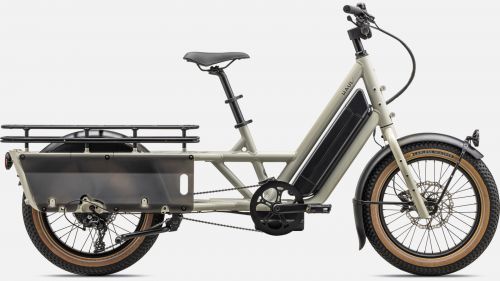
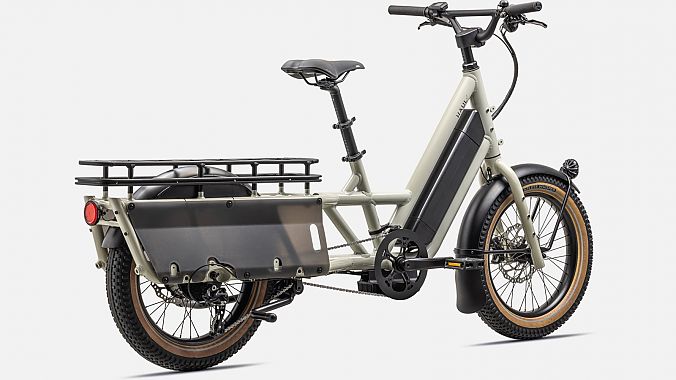

 "We built that shop last fall to give our Maui community a spectacular sales, service, and rental shop that was comparable to a pro-level shop on the mainland. We put months of blood, sweat, and tears into this and completely remodeled an old historic building one block from Front Street in the heart of downtown Lahaina."
"We built that shop last fall to give our Maui community a spectacular sales, service, and rental shop that was comparable to a pro-level shop on the mainland. We put months of blood, sweat, and tears into this and completely remodeled an old historic building one block from Front Street in the heart of downtown Lahaina."
 "My parents opened West Maui Cycles in 1994 and I bought it in 2012, but I don't know the future for the store," said Boote, who added that the future of the Lahaina location is uncertain.
"My parents opened West Maui Cycles in 1994 and I bought it in 2012, but I don't know the future for the store," said Boote, who added that the future of the Lahaina location is uncertain.
